Hundreds attended eight town halls across Tennessee. Here's what they said about how to fund schools
Dozens of Tennesseans from across the state have weighed in on a potential new way to fund public schools over the past six weeks.
Despite varying priorities in different communities, a few themes have emerged.
Increasing the state's share of the pot and providing more funding to staff school counselors, behavioral interventionists, school nurses and other student-support roles have dominated the conversations during town halls from Hendersonville to Pulaski and from Memphis to Greeneville.
Above all, the desire to address the specific needs of students who might cost more to educate, like students with disabilities, English language learners or students from economically-disadvantaged communities, emerged as a priority.
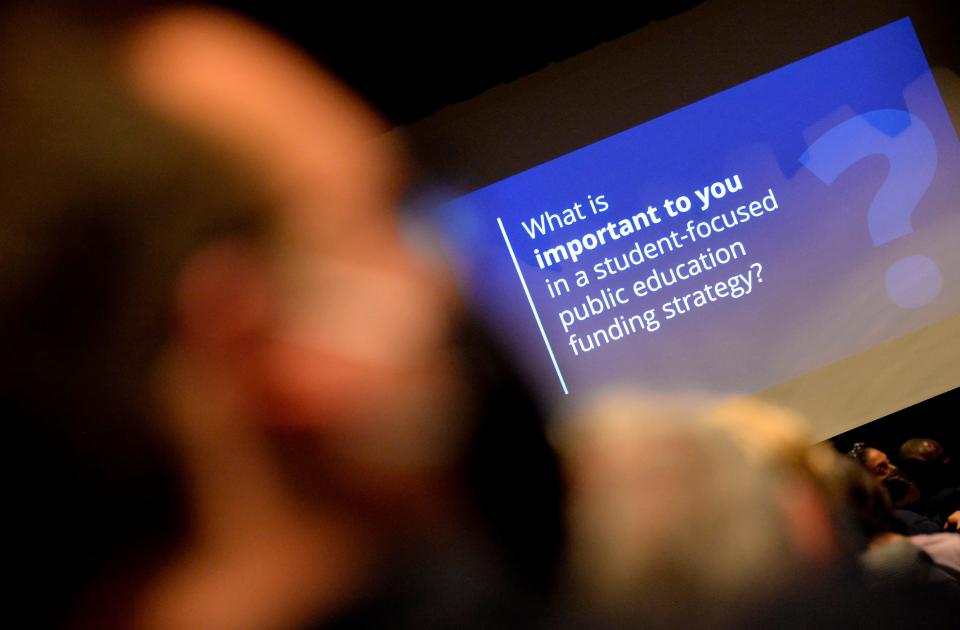
Hundreds of community members have attended eight town halls hosted by the Tennessee Department of Education since Gov. Bill Lee and Education Commissioner Penny Schwinn launched a "public comment period" to review the state's current K-12 funding formula: the Basic Education Program, or BEP.
More than 100 spoke.
An analysis by The Tennessean tracked each speaker and the topics they weighed in on.
The town halls have been one of the most transparent parts of the state's review. The department's 18 subcommittees have also started meeting. The department posts recordings of the meetings on its website.
Overall funding, student support, mental health: themes emerge
Of the about 110 speakers, 38% of them called for the state to increase the amount of funding allocated to public schools — something Lee has yet to commit to despite calls from Democrats and many educators.
“The pie that we are talking about is just not big enough,” said Kent Foreman, a Williamson County resident and a long-time volunteer in Metro Nashville Public Schools, at the first town hall in Hendersonville on Oct. 27.
Tennessee is set to spend $5.6 billion in state dollars this fiscal year on K-12 education but Foreman said many critical needs are not met.
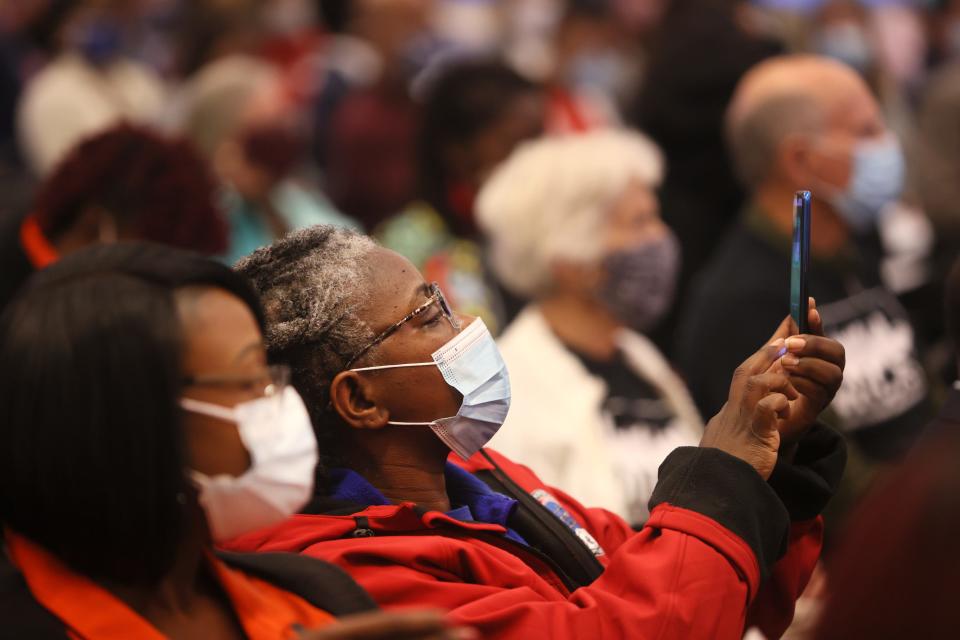
“The current funding doesn’t cover some critical areas like technology for every classroom, enough teachers from a ratio perspective for every classroom, enhanced studies, [Adanced Placement] courses, foreign language and physical education. It doesn’t cover expenses for mental health. It doesn’t cover professional development for teachers," Foreman said. “To me, it’s all about the amount of funding, not so much the allocation of funding."
Almost half of the speakers also called on schools to do a better job of addressing specific student needs, such as those of new arrivals to the country or students with disabilities.
STRAIGHT TO YOUR INBOX: Stay up-to-date on Tennessee's top education news by signing up for our new weekly newsletter, School Zone. Sign up here.
"Just this year alone, we have received 147 newcomers to Howard [High] School," said LeAndrea Ware, executive principal of The Howard School in Chattanooga and the 2019 Tennessee Principal of the Year, said.
Many of these students have limited English language skills or have missed years of formal education.
"Student-based funding is really going to help us and support us in how do we come up with nontraditional, customized ways to make sure every student can leave here and be a productive citizen in society," she said.
In Knoxville, concerns about whether all schools are able to provide a free, appropriate education to students with disabilities as promised by the Individuals with Disabilities Education Act (IDEA) came up several times during a Nov. 2 town hall on the University of Tennessee — Knoxville's campus.
STUDENT-CENTERED FUNDING: Why Tennessee is considering funding some groups of students differently
Tiffany Cofield struggled for years to ensure one of her children received the services laid out in his individualized education program (IEP) plan for students with disabilities.
“I believe the state funding formula is strangling our school system when it comes to properly serving students with disabilities in the least restrictive environments," Cofield said. "I believe the current funding formula is and has even forced Knox County Schools to choose litigation over education.”
And in many more rural communities, school and local officials worried how their communities might be affected if all students are funded similarly.
Rural school district concerns
Many rural areas are unable to raise the same property tax or sales tax revenues compared to larger urban areas like Nashville or Memphis, officials said.
Rural areas also often lack options like alternative means of transportation, leaving schools to do it all, Deb Whittaker said during a town hall in Gainesboro Tuesday.
"We don't have some of the things that are available to kids in Nashville, Knoxville, Chattanooga and Memphis. We have no public transportation. There's no getting on a bus and going from one end of the county to a doctor's appointment," she said of Jackson County.
Schwinn frequently emphasized the goal of a student-centered funding approach is to address these very concerns.
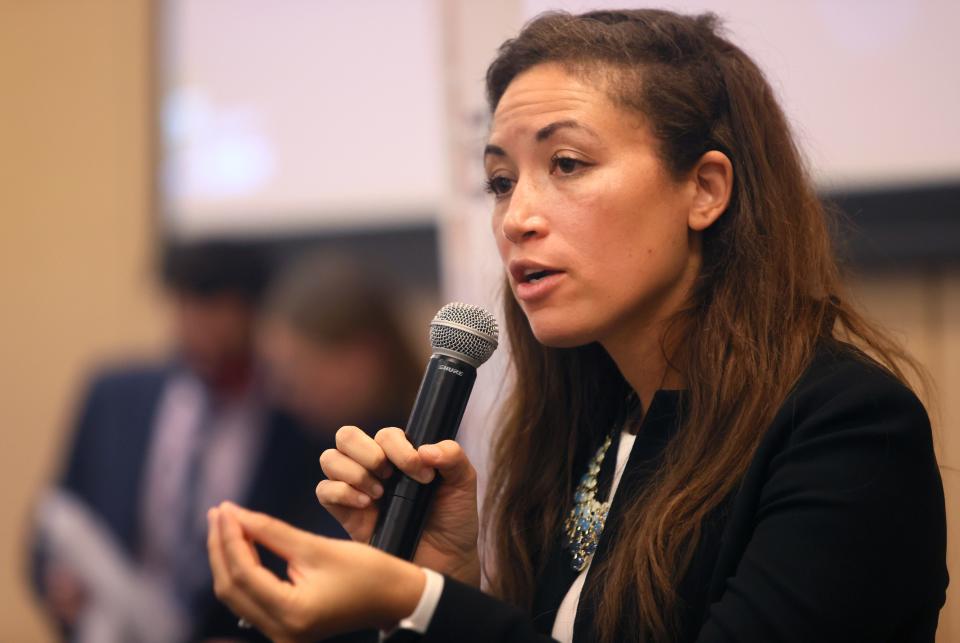
"One of the foundational elements of a student-based budget is that it is funding the needs of individual children and then collectively, that creates a budget. How that money then gets allocated at the district level is much more flexible," Schwinn explained at an Oct. 29 town hall in Memphis.
"They can respond to the needs of students. It also ensures that as many dollars as possible stay in classrooms and in school buildings."
Do parents want more choice?
Critics of the state's process argue it is a veiled attempt to justify more school choice, charter schools and vouchers.
About 10% of speakers called for more choice in alignment with the state's stated desire for "money to follow the students." But about 12% of speakers also raised concerns with additional choice and the possibility that funding could leave a public school district altogether.
An impassioned father of seven in Chattanooga, Kevin Cherrick called the current public school system in Hamilton County a "failure" and said public tax dollars should be given to parents to use to educate their children how they see fit.
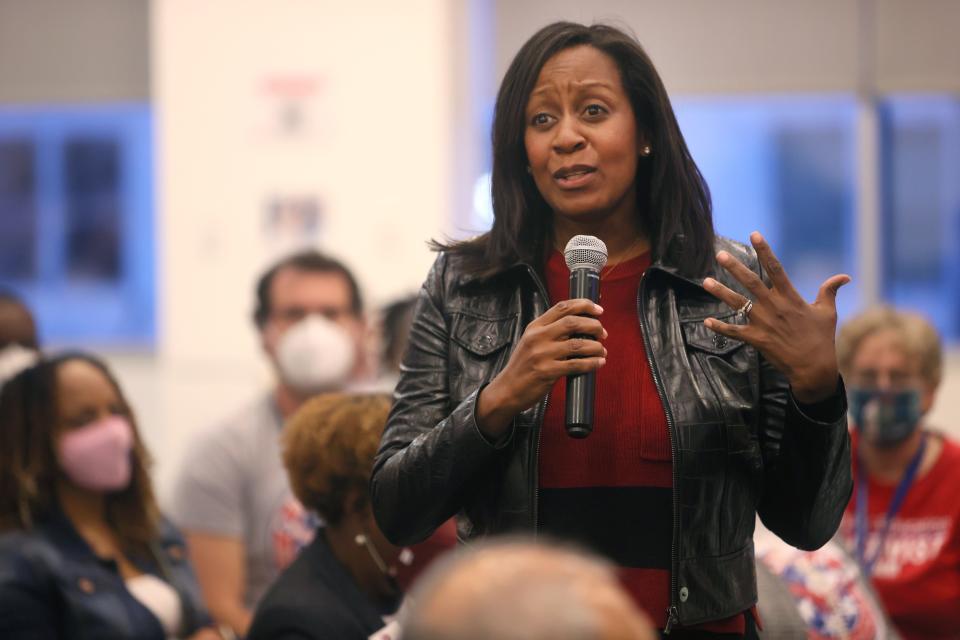
"The fundamental mission of education is to allow our children to provide for themselves and no one is in a better position to understand the needs of their child than their parent," Cherrick said during a Nov. 5 town hall at The Howard School in Chattanooga. "Funding should go directly to parents to be spent as they see fit for the need of their kid."
Educators and public school advocates in both rural and urban areas alike argued against a move toward school vouchers or other methods of privatization.
RELATED: Political battle lines emerge as Tennessee begins overhaul of K-12 school funding formula
Schwinn often dodged such comments or emphasized that the town hall conversations were focused on public school funding.
But she did acknowledge that further efforts to implement school vouchers — one of the first priorities of the Lee administration and one that is already tied up in the court system — would be up to the General Assembly.
Review process concerns
Talk of school vouchers was often also accompanied by concerns about the overall review process. Many parents asked how they could weigh in and teachers asked if they were represented on the department's many subcommittees.
Some questioned how the state could genuinely review the BEP since it has never fully funded the 30-year-old formula, they argued.
In Pulaski, Jackie Pope, an educator and member of the Franklin County Education Association, expressed concerns that the steering committee that will eventually vet recommendations is made up entirely of GOP lawmakers and about the presence of the Beacon Center of Tennessee, a conservative think tank, in the subcommittee process.
"Our General Assembly and our state refuses to put the money in our schools," she said. "We want the best schools, but our General Assembly is not willing to pay for it."
The department and the Governor's Office have previously defended the choice of committee members, noting that the steering committee consists of Lee, Schwinn, and legislative leadership from House and Senate education and finance committees.
Specific concerns vary by region
Whether final recommendations will reflect what was heard at these town halls is still unclear.
Many rural school and industry leaders have highlighted the need for more robust career and technical education and workforce development initiatives — something both Lee and former Gov. Bill Haslam have championed.
Capital, or facilities concerns, was another topic of concern. Most school districts rely on local funding for facility needs, though the state offers some funding incentives for charter school facilities.
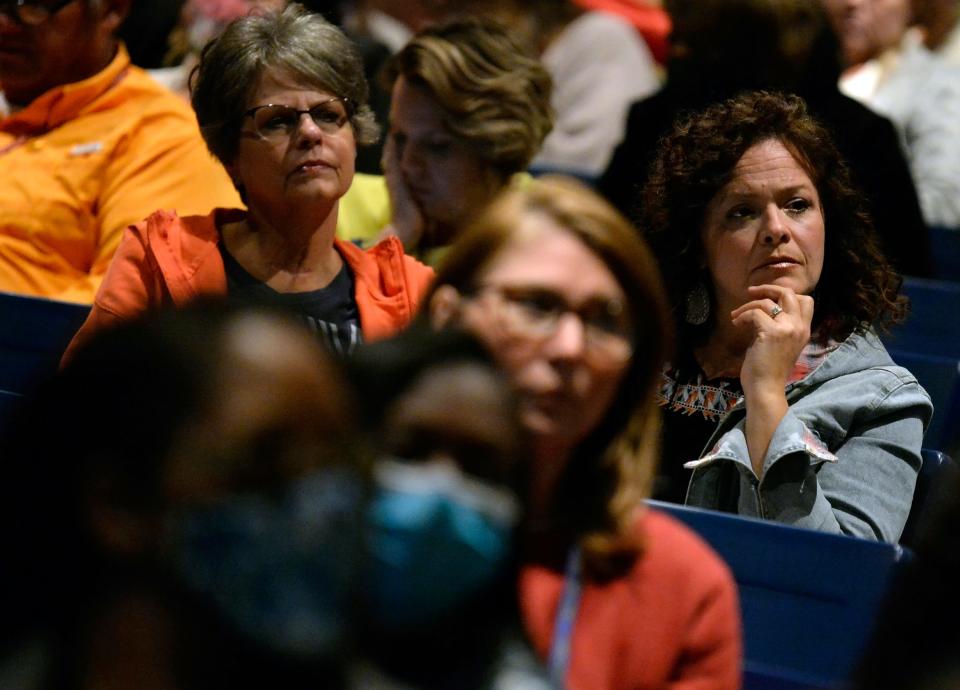
"We just want children to be happy, to learn and to go to school and enjoy the process and got to school in buildings that are not crumbling quite honestly," said Michelle Robinson McKissack, chair of the Shelby County school board.
"We have so many old buildings here in the Memphis area and we just can’t keep up right now with the funding that we have."
Shelby County Schools is currently tackling more than $500 million in deferred maintenance, and in some smaller, rural communities, schools are simply closed when districts can't afford to renovate or repair them.
More funding for early childhood education, even universal voluntary pre-K, also came up. The state currently does not significantly fund pre-kindergarten efforts, with many communities relying on federal funding or local funds despite many Tennessee students not being considered "kindergarten ready" when they start school.
TENNESSEE'S CURRENT FUNDING FORMULA: What to know about Tennessee's school funding formula — and the plans to change it
What's next?
Each of the department's 18 subcommittees are slated to meet at least three times through January and a variety of other education advocacy organizations are also holding town halls to discuss the future of school funding in Tennessee.
Though Lee did not commit to a timeframe for proposing a new funding strategy when he and Schwinn first announced the process in October, he did say it was his hope to have something to present to the General Assembly during the 2022 legislative session.
Meanwhile, on Nov. 19, Tennessee's Attorney General Herbert Slatery III and other state representatives filed a joint motion with Tennessee school districts to halt proceedings in a six-year-old school funding lawsuit until after the session.
The motion hints that Lee "may propose legislative changes to the BEP during the 2022 legislative session, if he determines that such changes are in the [s]tate’s best interest.
In the lawsuit, districts allege that Tennessee inadequately funds K-12 education. The 2022 legislative session begins on Jan. 11, 2022.
Reporters Laura Testino of The Commercial Appeal and Mike Christen of The Daily Herald contributed to this story.
Want to read more stories like this? A subscription to one of our Tennessee publications gets you unlimited access to all the latest news throughout the entire USA TODAY Network.
Meghan Mangrum covers education for the USA TODAY Network — Tennessee. Contact her at mmangrum@tennessean.com. Follow her on Twitter @memangrum.
This article originally appeared on Nashville Tennessean: Tennessee education funding: What we learned from eight town halls

